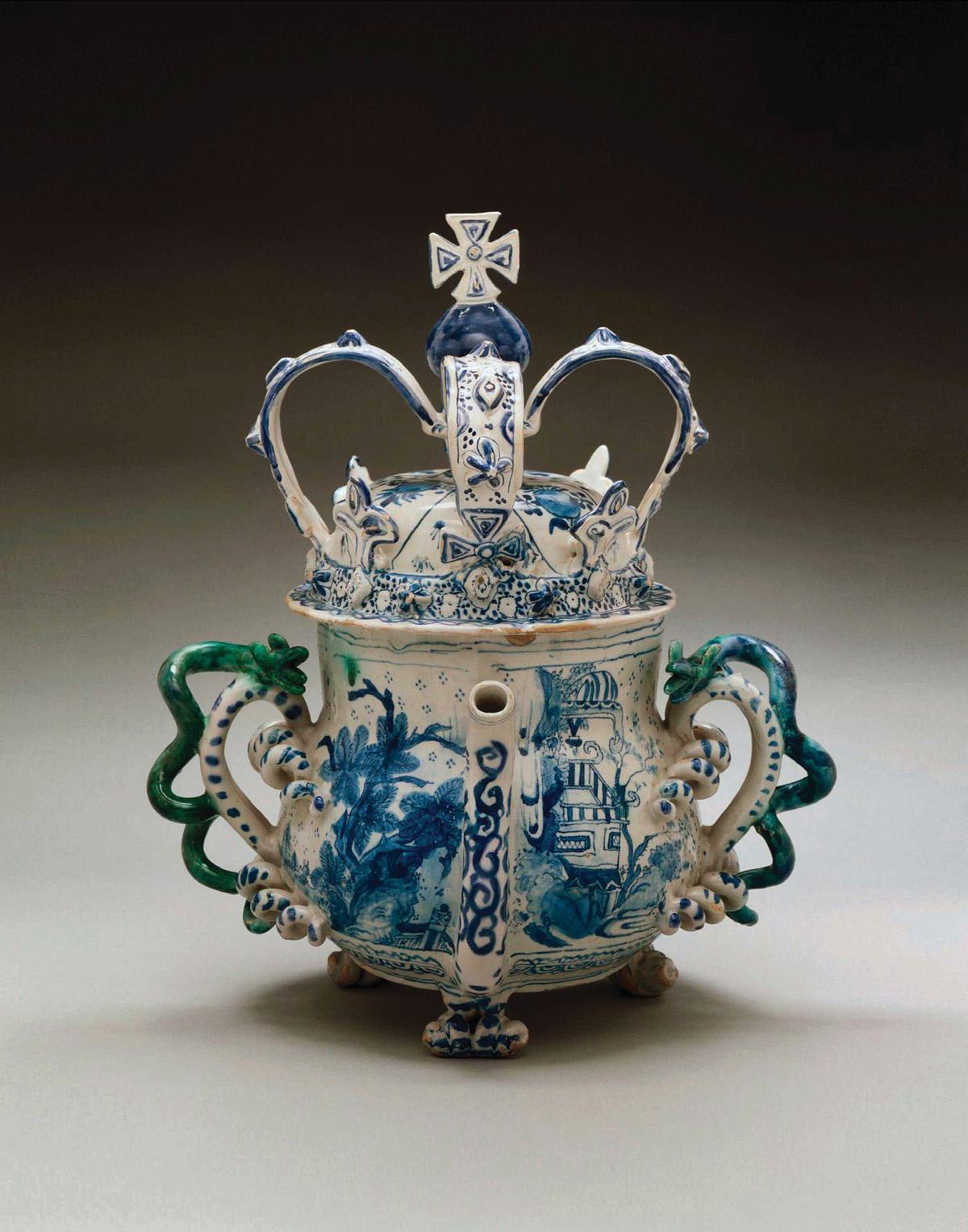
Inspired by Dutch tin-glazed earthenware first made in the town of Delft in Holland, English delftware first emerged in the 1620s in London workshops such as the gloriously named Pickleherring Pottery and was manufactured in Liverpool and Bristol potteries, too. 'Delftware first became of interest when William and Mary came to the throne in 1689 and brought a certain amount of Dutch pottery over with them,' says Garry Atkins, antiques dealer and pottery expert. 'People copied what the king and queen liked. Delftware doesn't have quite the same appeal as porcelain, which was grander stuff, but I just love it. It's very simple and so appealing - not over-elaborate.
The Dutch copied Chinese porcelain patterns, but the English potters did their own thing.' Up until this point, most people in England were using pewter or wooden plates. The very wealthy used silver, of course, but English delftware was embraced by the middle classes,' explains John Howard, antique English pottery specialist. The unique appeal of English delftware is difficult to pin-point, though many agree it has a fluid, free style whereas Dutch Delftware tends to be a bit more formal. 'English delftware has a strong country naivety to it that the Dutch pieces lack,' explains John.
The new manufacturing technique gave a white, smooth surface to buff-coloured earthenware clay, but it was tricky to fire. English delftware was never cheap, because less than half of the pieces that were fired could be sold at full price,' reveals John. Fragility was another issue - the actual body was strong, but the glaze was liable to chip and craze, so it wasn't suitable for serving very hot liquids. The pattern was hand-painted in a limited colour palette of mineral pigments that were high-fired: blue, yellow, orange, purple, green and red. 'Both Dutch and English potters used oxide colours, but there are subtle differences,' says John. For example, the cobalt isn't quite as hard in English pieces.'
Esta historia es de la edición Special 2022 de Homes & Antiques.
Comience su prueba gratuita de Magzter GOLD de 7 días para acceder a miles de historias premium seleccionadas y a más de 9,000 revistas y periódicos.
Ya eres suscriptor ? Conectar
Esta historia es de la edición Special 2022 de Homes & Antiques.
Comience su prueba gratuita de Magzter GOLD de 7 días para acceder a miles de historias premium seleccionadas y a más de 9,000 revistas y periódicos.
Ya eres suscriptor? Conectar
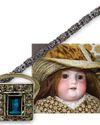
Lisa Coppin
The Cotswold Company’s chief creative officer shares the pieces that mean so much to her

TRAVEL
Six of the best pineta, plus a festive trip to Covent Garden. Review of The Orange, Belgravia by Katie Pike, travel stories
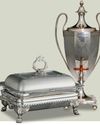
OLD SHEFFIELD PLATE
Stumbled upon by chance, this ingenious material was a more affordable option than solid silver, and well-preserved examples are particularly desirable today
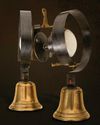
Merrily on high
Summoning servants since the 1700s, bell boards create instant English country-house style (even if you don't have any servants). Emma Longstaff dons her pinny
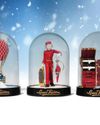
Let it snow
Nostalgic, magical and highly collectable, snow globes are curious objects of wonder that never fail to instil joy
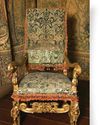
Velvet Crush
Once the preserve of the wealthy, velvet finally touched all levels of society, thanks to advances in its production process

Celebrating in the Stable
Antiques dealer Julia von Hülsen specialises in Gustavian pieces - all of which look perfectly placed in her German home
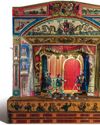
THE SHOW MUST GO ON
Victorian toy theatres charming and exquisitely designed miniature worlds have inspired theatre royalty for decades. Today, the tradition is being kept alive by a small but talented network of makers
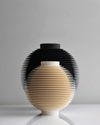
NICHOLAS LEES
The ceramic artist talks to Dominique Corlett about new ways of working with clay and blurring the edges of solid objects

Candy CHRISTMAS
Pastel hues, vintage decorations and bowls of sweet treats: the festive run-up is gloriously joyful at Bettina Færgeman's historic Copenhagen apartment, where there's an emphasis on entertaining...